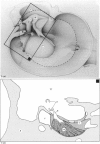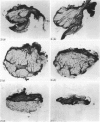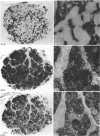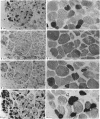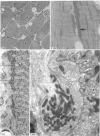Abstract
The stapedius muscle of the rat, a very small muscle, appeared to have several atypical morphological characteristics. The muscle fibres were found to be irregularly shaped and composed of relatively small bundles of myofibrils. Mitochondria were distributed irregularly, i.e. in long strands, between the bundles of myofibrils. Enzyme histochemically, most fibres could be classified as fast oxidative glycolytic fibres (IIA). Only 5% of the fibres appeared to be slow twitch fibres; however, these fibres also had a high glycolytic capacity and therefore could not be classified as the classical slow twitch fibres. The immunohistochemical staining with monoclonal anti-heavy chain myosin isotypes showed discrepancies when compared to the enzyme histochemical results. Moreover, different adult heavy chain myosin isotypes appeared to coexist in one single muscle fibre. The results suggest that the muscle has an isometric contraction pattern and that it can contract rapidly with great endurance. This endows the muscle with properties suitable for a function in the prevention of noise-induced hearing loss and also in impact noise over longer periods of time.
Full text
PDF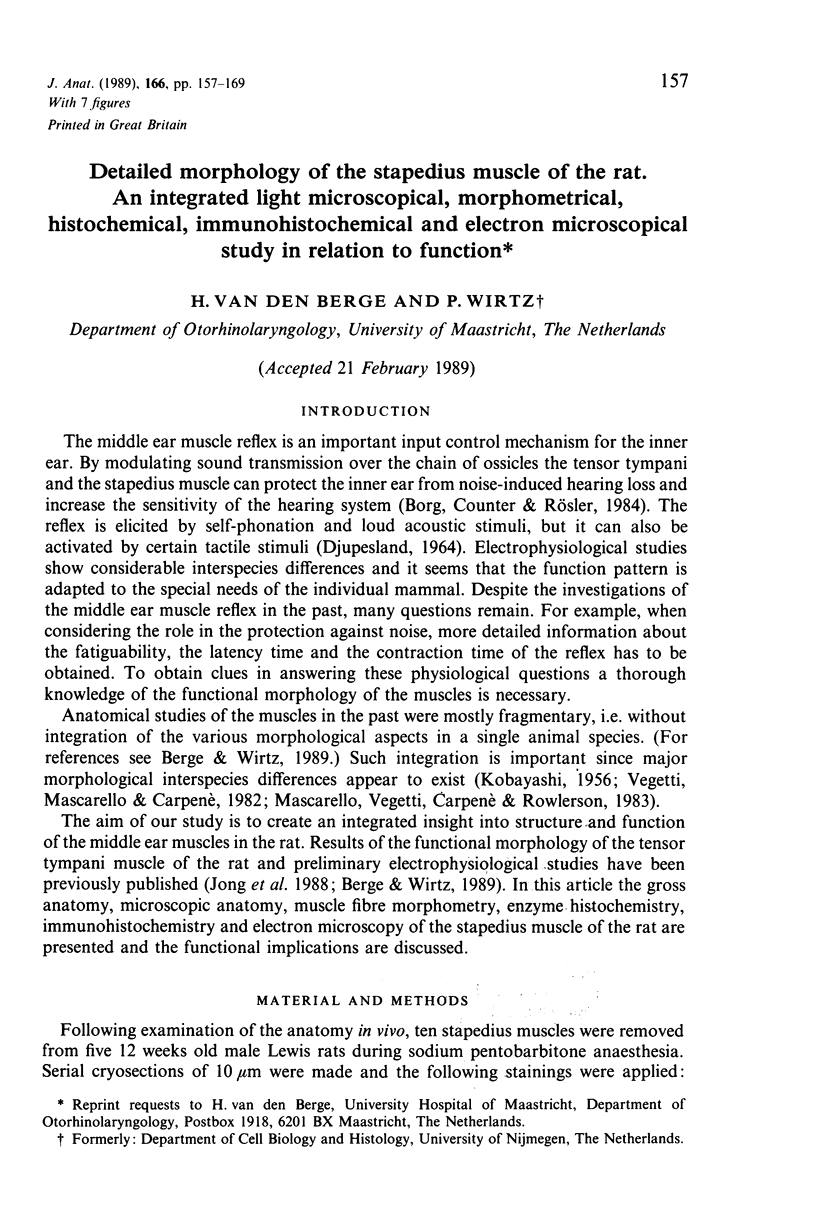
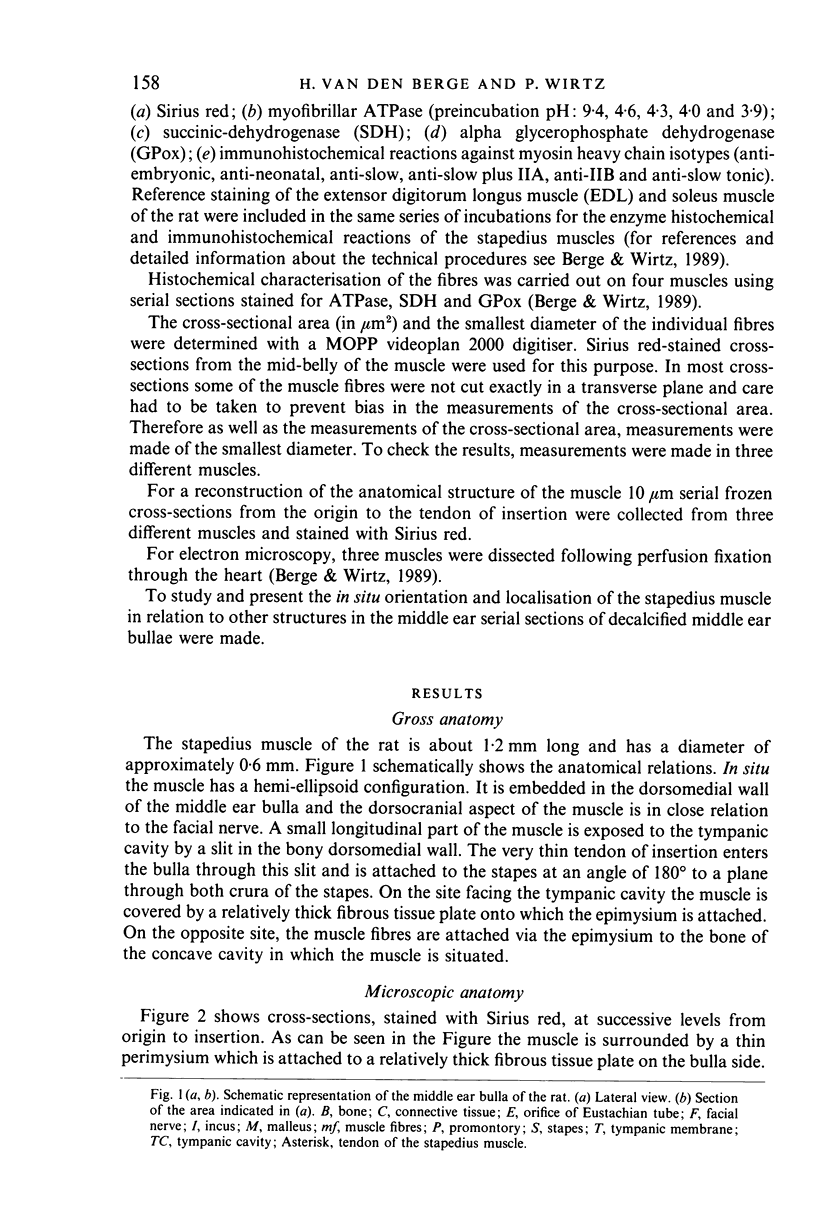
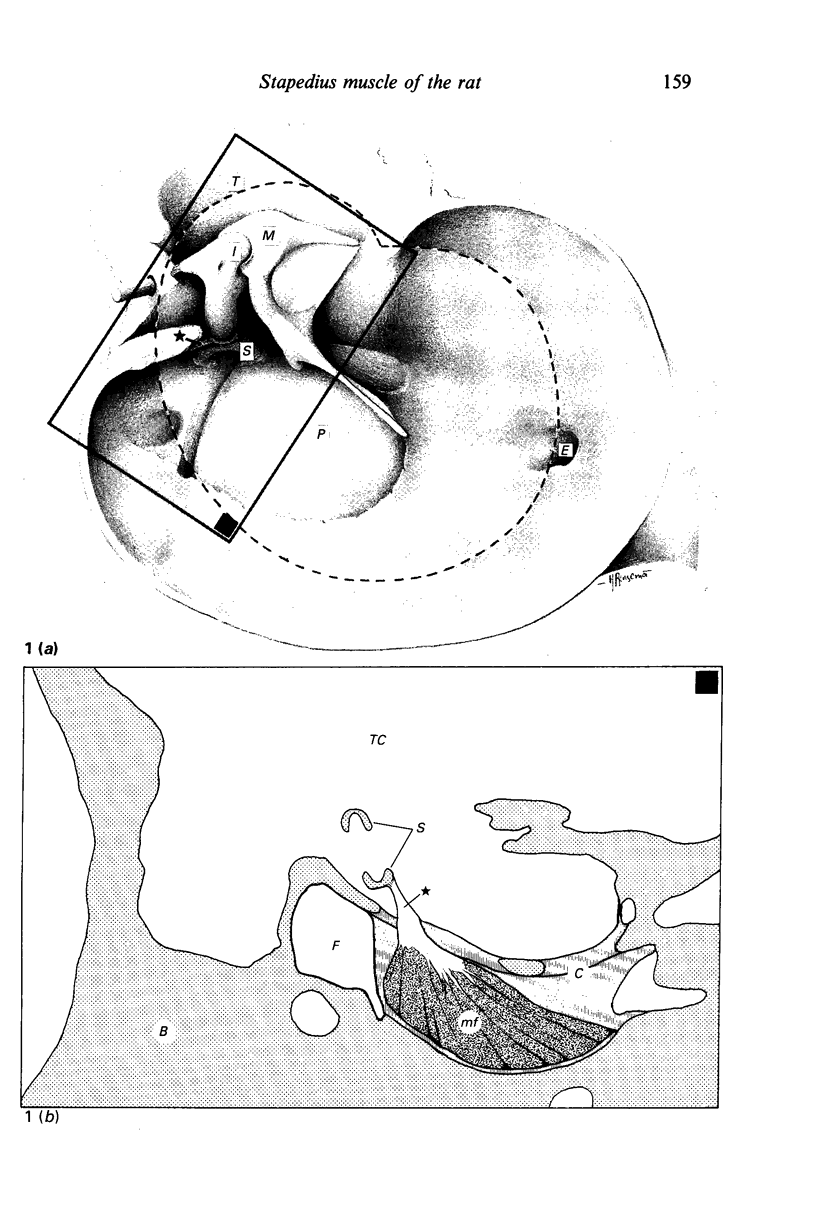
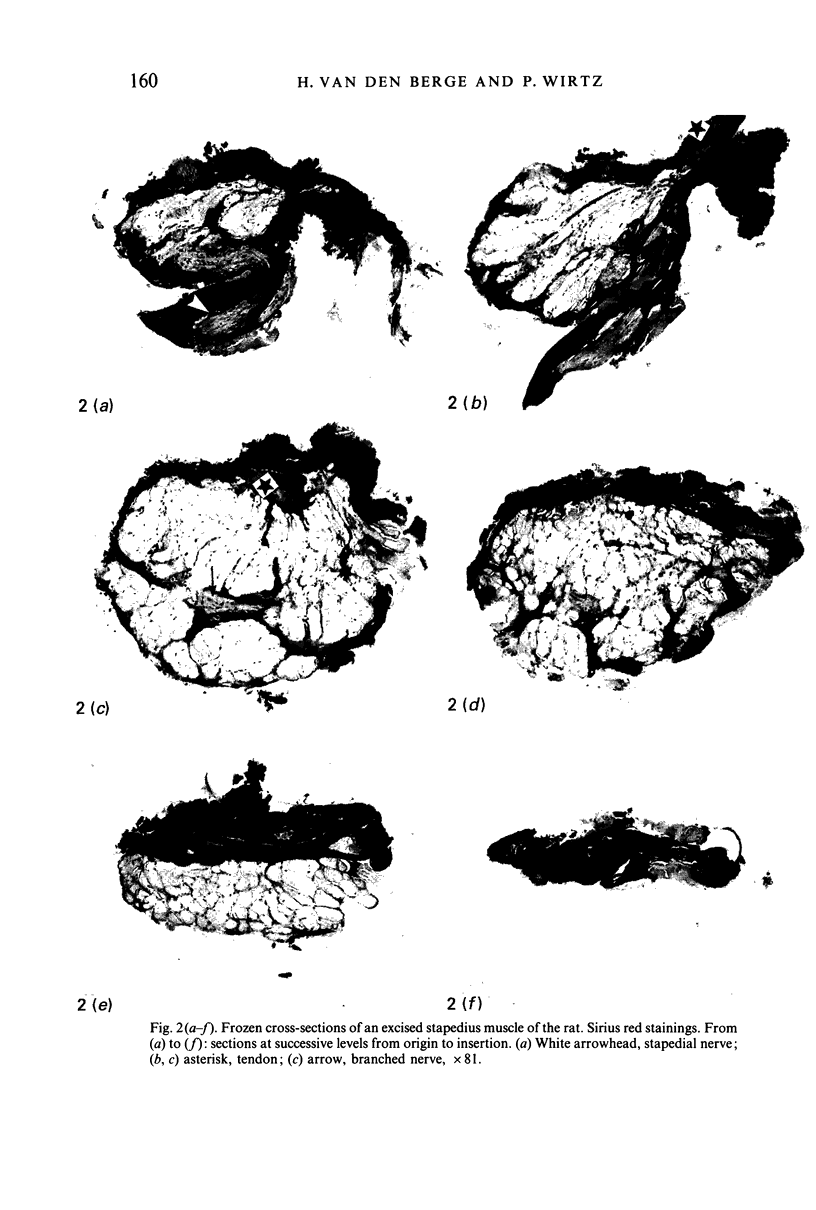
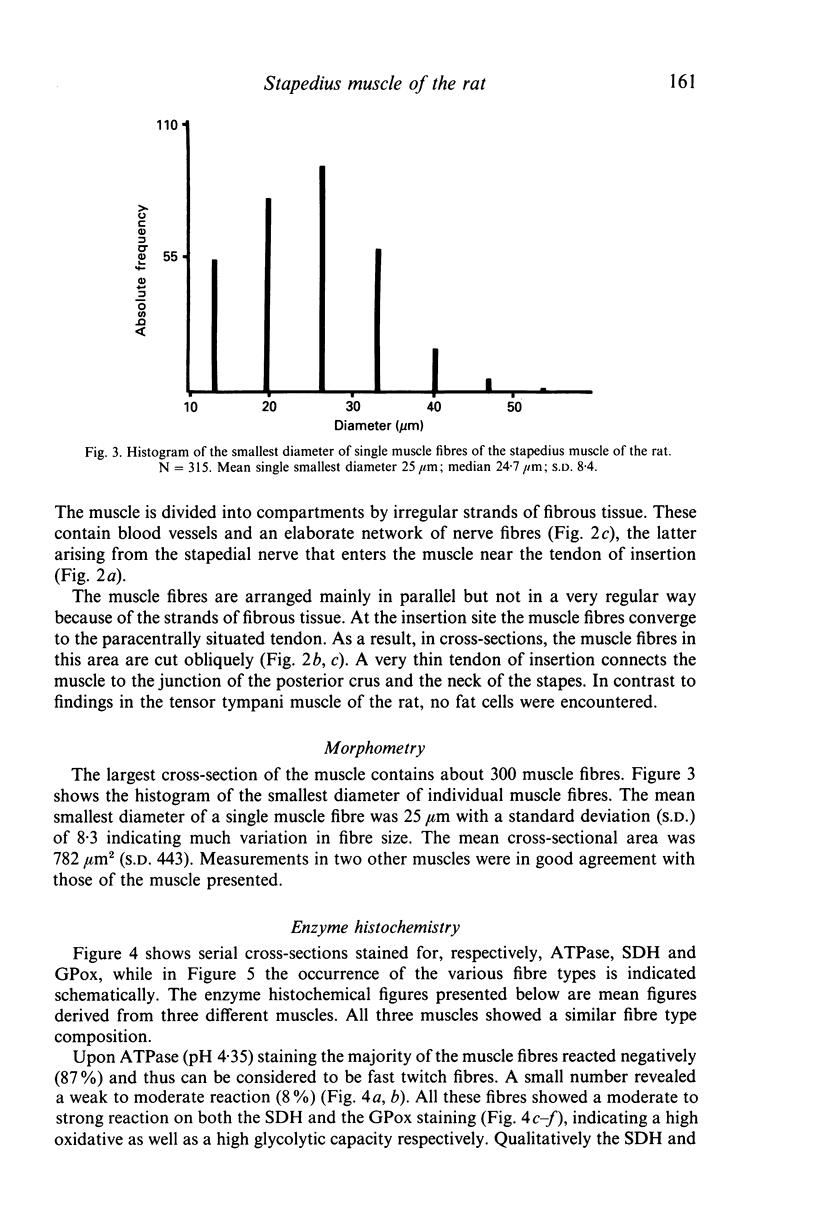
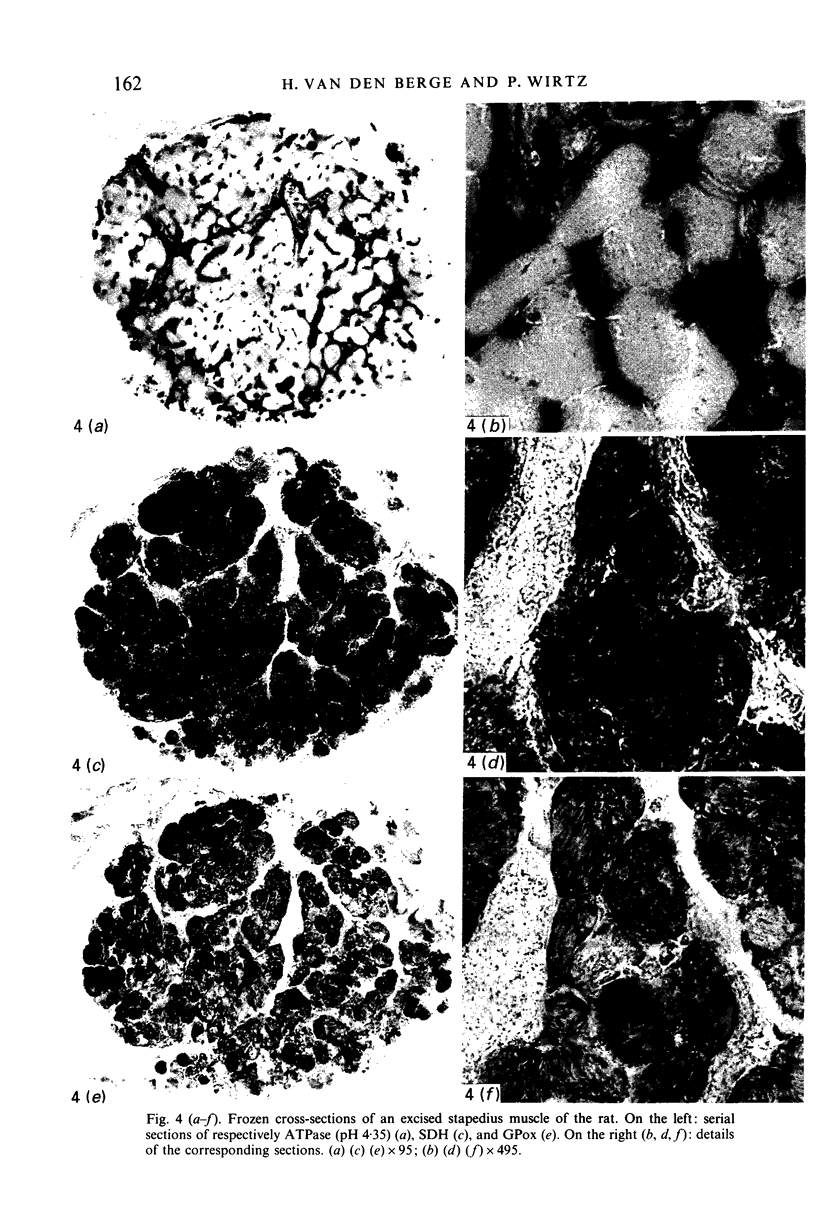
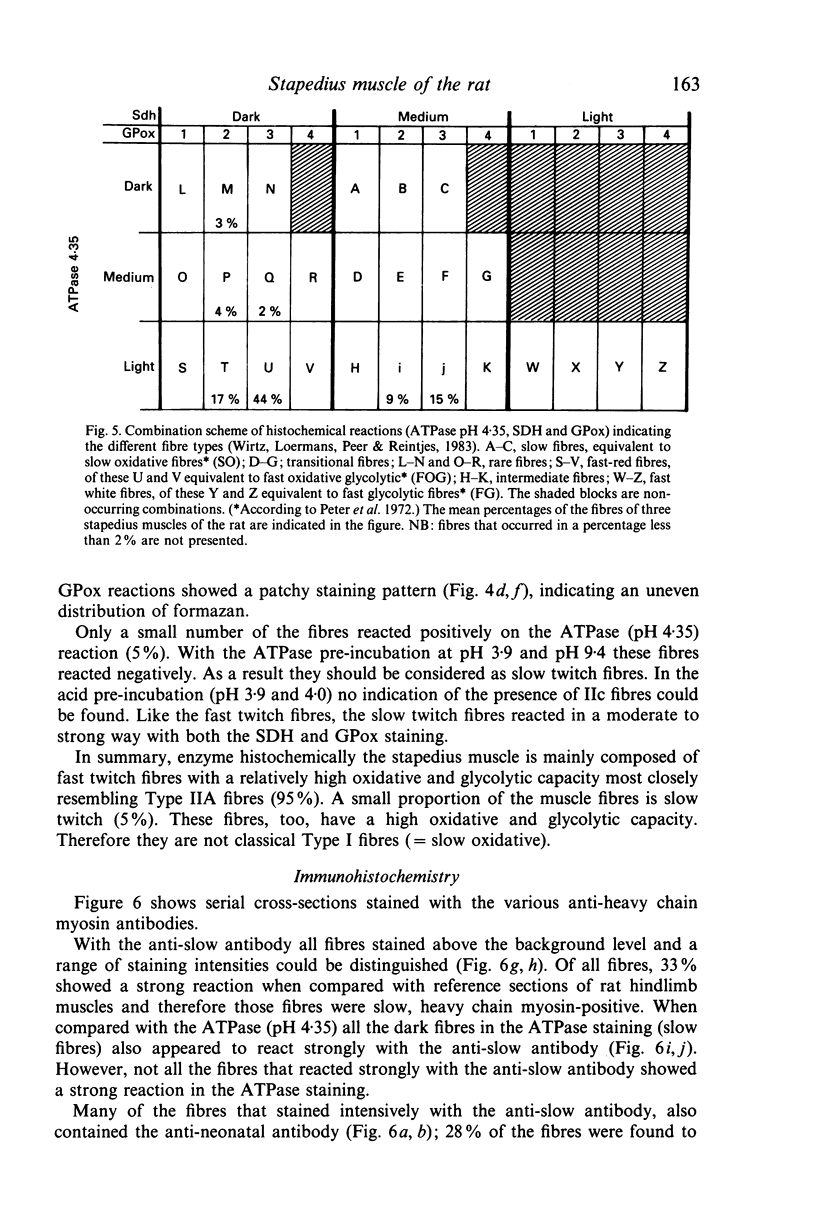
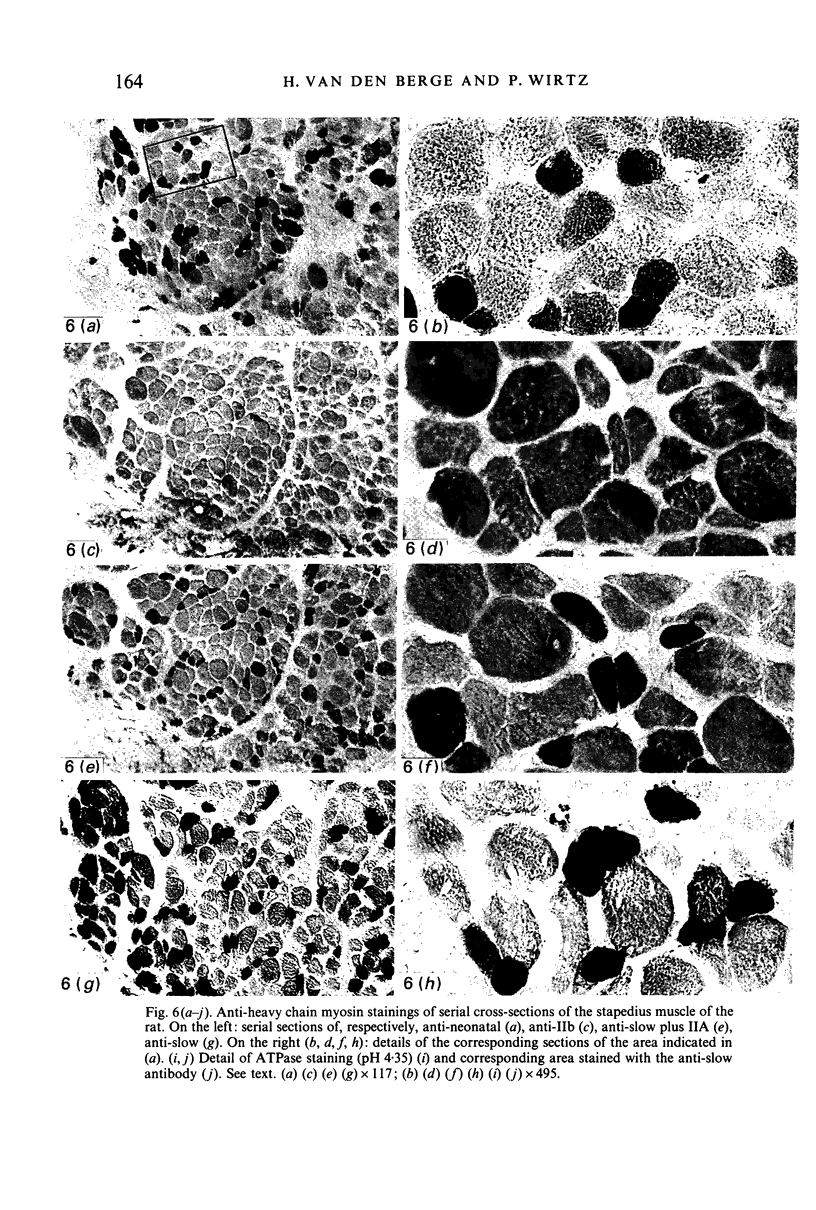
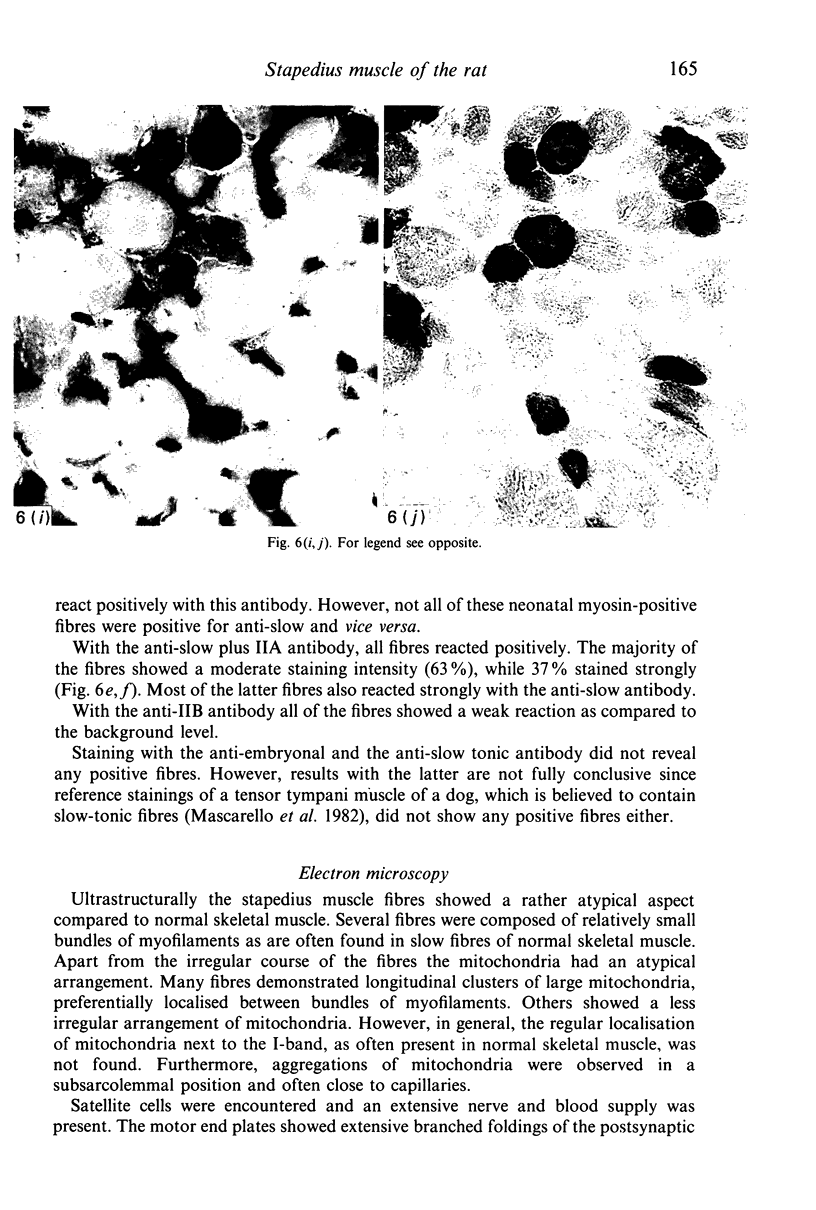
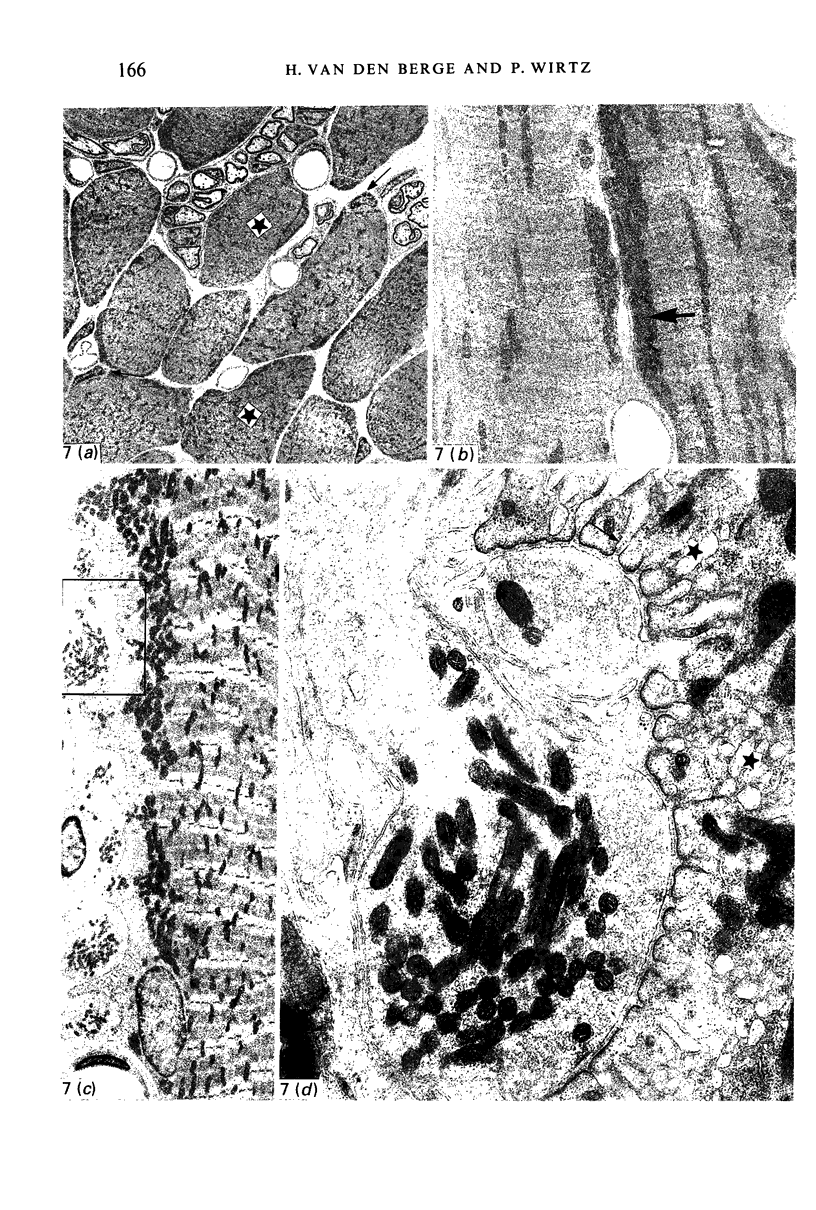
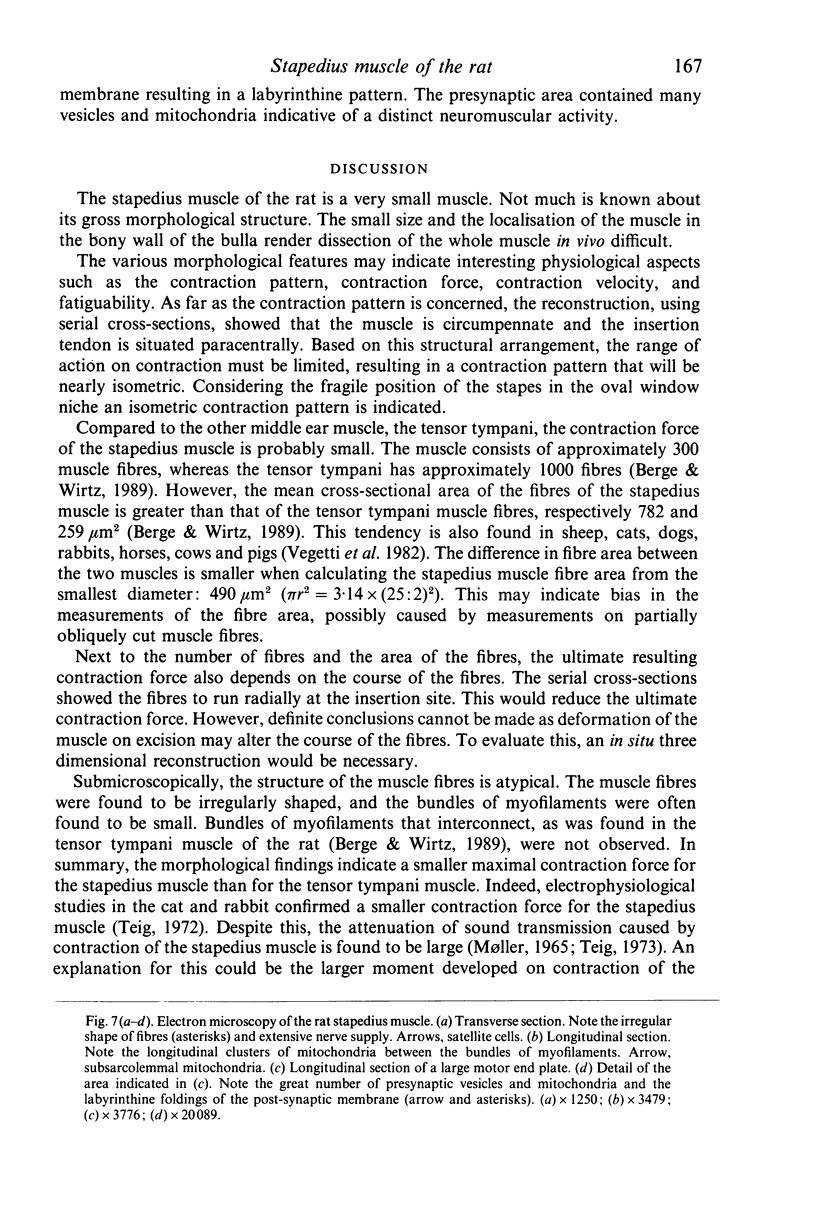
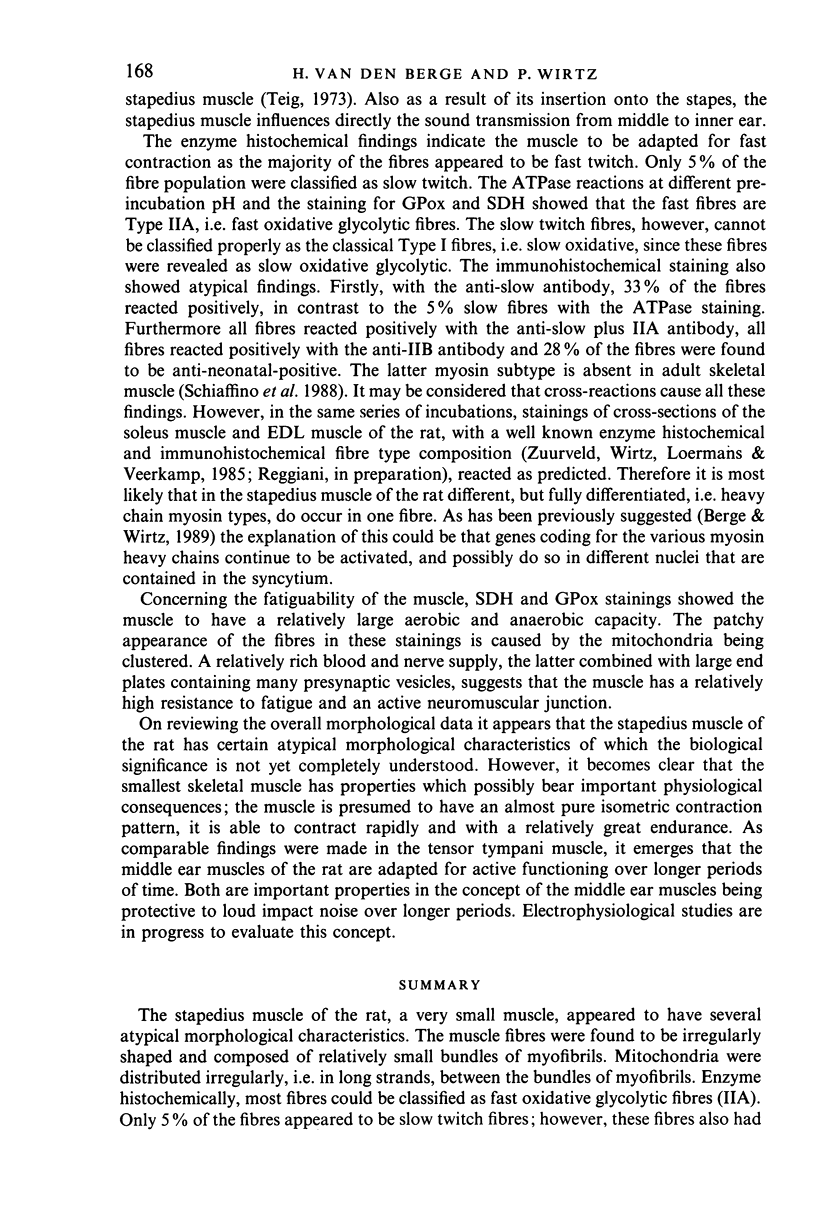
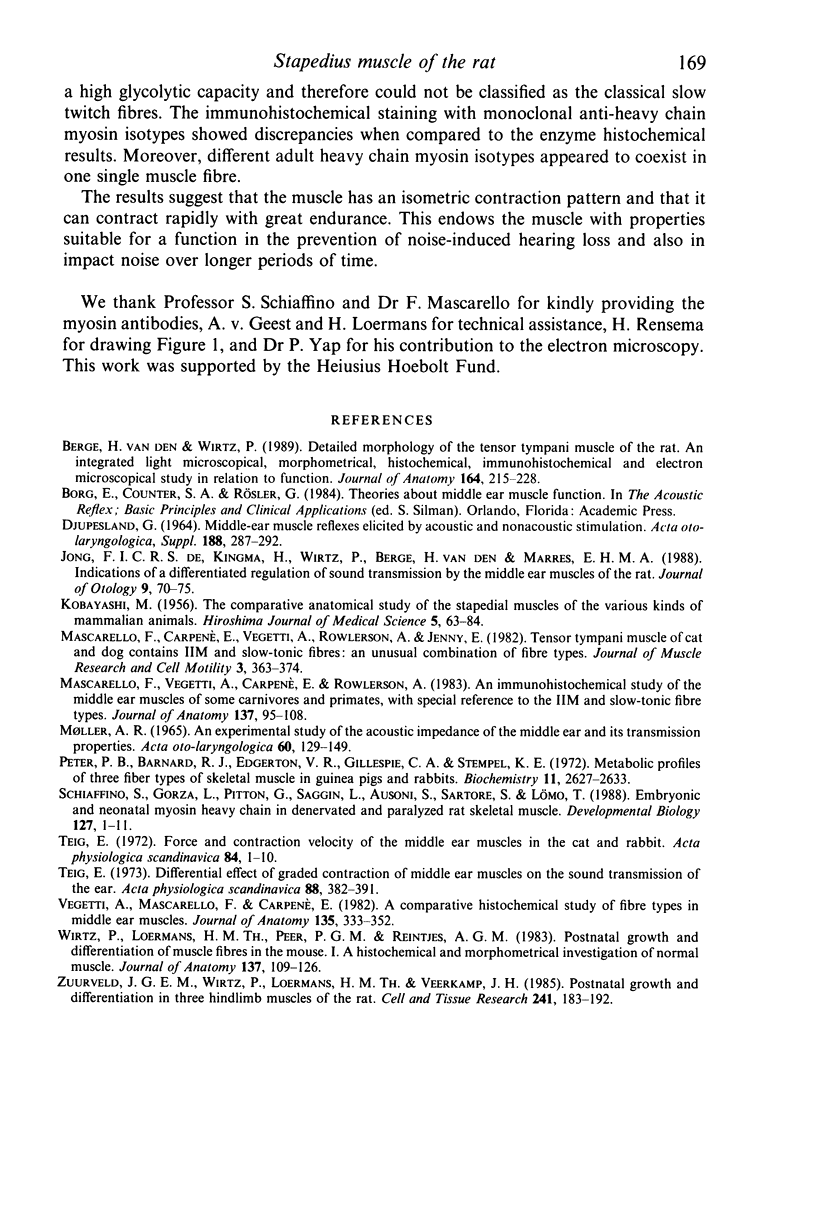
Images in this article
Selected References
These references are in PubMed. This may not be the complete list of references from this article.
- DJUPESLAND G. MIDDLE EAR MUSCLE REFLEXES ELICITED BY ACOUSTIC AND NONACOUSTIC STIMULATION. Acta Otolaryngol Suppl. 1964;188:SUPPL 188–188:287+. doi: 10.3109/00016486409134578. [DOI] [PubMed] [Google Scholar]
- Mascarello F., Carpenè E., Veggetti A., Rowlerson A., Jenny E. The tensor tympani muscle of cat and dog contains IIM and slow-tonic fibres: an unusual combination of fibre types. J Muscle Res Cell Motil. 1982 Sep;3(3):363–374. doi: 10.1007/BF00713043. [DOI] [PubMed] [Google Scholar]
- Mascarello F., Veggetti A., Cerpenè E., Rowlerson A. An immunohistochemical study of the middle ear muscles of some carnivores and primates, with special reference to the IIM and slow-tonic fibre types. J Anat. 1983 Aug;137(Pt 1):95–108. [PMC free article] [PubMed] [Google Scholar]
- Peter J. B., Barnard R. J., Edgerton V. R., Gillespie C. A., Stempel K. E. Metabolic profiles of three fiber types of skeletal muscle in guinea pigs and rabbits. Biochemistry. 1972 Jul 4;11(14):2627–2633. doi: 10.1021/bi00764a013. [DOI] [PubMed] [Google Scholar]
- Schiaffino S., Gorza L., Pitton G., Saggin L., Ausoni S., Sartore S., Lømo T. Embryonic and neonatal myosin heavy chain in denervated and paralyzed rat skeletal muscle. Dev Biol. 1988 May;127(1):1–11. doi: 10.1016/0012-1606(88)90183-2. [DOI] [PubMed] [Google Scholar]
- Teig E. Differential effect of graded contraction of middle ear muscles on the sound transmission of the ear. Acta Physiol Scand. 1973 Jul;88(3):382–391. doi: 10.1111/j.1748-1716.1973.tb05467.x. [DOI] [PubMed] [Google Scholar]
- Teig E. Force and contraction velocity of the middle ear muscles in the cat and the rabbit. Acta Physiol Scand. 1972 Jan;84(1):1–10. doi: 10.1111/j.1748-1716.1972.tb05149.x. [DOI] [PubMed] [Google Scholar]
- Veggetti A., Mascarello F., Carpenè E. A comparative histochemical study of fibre types in middle ear muscles. J Anat. 1982 Sep;135(Pt 2):333–352. [PMC free article] [PubMed] [Google Scholar]
- Wirtz P., Loermans H. M., Peer P. G., Reintjes A. G. Postnatal growth and differentiation of muscle fibres in the mouse. I. A histochemical and morphometrical investigation of normal muscle. J Anat. 1983 Aug;137(Pt 1):109–126. [PMC free article] [PubMed] [Google Scholar]
- Zuurveld J. G., Wirtz P., Loermans H. M., Veerkamp J. H. Postnatal growth and differentiation in three hindlimb muscles of the rat. Characterization with biochemical and enzyme-histochemical methods. Cell Tissue Res. 1985;241(1):183–192. doi: 10.1007/BF00214640. [DOI] [PubMed] [Google Scholar]
- de Jong F. I., Kingma H., Wirtz P., vd Berge H., Marres E. H. Indications of a differentiated regulation of sound transmission by the middle ear muscles of the rat. Am J Otol. 1988 Jan;9(1):70–75. [PubMed] [Google Scholar]
- van den Berge H., Wirtz P. Detailed morphology of the tensor tympani muscle of the rat. An integrated light microscopical, morphometrical, histochemical, immunohistochemical and electron microscopical study in relation to function. J Anat. 1989 Jun;164:215–228. [PMC free article] [PubMed] [Google Scholar]



